Testimonials
 Improving the efficiency of courts and the quality of judicial services in Azerbaijan
Improving the efficiency of courts and the quality of judicial services in Azerbaijan
Between June 2015-March 2017 the Council of Europe and authorities of Azerbaijan worked together to improve the efficiency of courts and the quality of judicial services, as well as lawyers’ self-governance. This two-year project "Support to increased efficiency of courts, improved training of judges and judicial self-governance in Azerbaijan", was organised under the European Union and the Council of Europe Partnership for Good Governance. The participants and beneficiares of the project were interviewed to discover the impact it has had, and will continue to have, on their work.

Səadət Bəktaşi
Sumqayıt Apelyasiya Məhkəməsinin sədri
2015-ci ilin iyul ayından CEPEJ tərəfindən həyata keçirilən “Azərbaycanda məhkəmələrin səmərəliliyinin artırılmasına, hakimlərin təliminin təkmilləşdiriləsinə və məhkəmələrdə özünüidarəetməyə dəstək” layihəsi çərçivəsində bir sıra mühüm addımlar atılmış, işlər görülmüş, Strasburqda və Bakıda seminar və praktiki məşğələlər təşkil olunmuş, hakim və məhkəmə aparatı əməkdaşları üçün məhkəmələrin idarə edilməsi mövzusunda təlimlər keçirilmiş, fikir mübadiləsi aparılmışdır. Bütün görülən işlərin nəticəsində istər məmnuniyyət sorğuları, istərsə də məhkəmə statistikası və məhkəmələrdə vaxtın idarə olunması sahəsində əsas CEPEJ alətləri Azərbaycanın pilot məhkəmələrində, o cümlədən Sumqayıt Apelyasiya Məhkəməsi, Şəki Apelyasiya Məhkəməsi, Sumqayıt İnzibati-İqtisadi Məhkəməsi, Yasamal Rayon Məhkəməsi və Oğuz Rayon Məhkəməsində yüksək səviyyədə tətbiq edilmişdir.
CEPEJ ekspertlərinin də qeyd etdiyi kimi Azərbaycan pilot məhkəmələri CEPEJ-lə əməkdaşlıq çərçivəsində yüksək göstəricilər əldə etmişlər. Lakin qeyd edilməlidir ki, görülmüş işlər bununla bitmir. Hazırda da Azərbaycan pilot məhkəmələri CEPEJ-lə əməkdaşlıqdan dəyərlənməkdə davam edir. O cümlədən, Sumqayıt Apelyasiya Məhkəməsi öz fəaliyyətini daim təhlil edir və işin keyfiyyətinin yaxşılaşdırılması istiqamətində zəruri tədbirlər görür. Bu sahədə CEPEJ ekspertləri tərəfindən tövsiyə olunan göstəricilərin tətbiqinin səmərəsi də danılmazdır.
Ona görə də hesab edirəm ki, CEPEJ-lə əməkdaşlıq çərçivəsində görülmüş işlər diqqətə layiqdir və məhkəmə sisteminə inamın daha da artmasına xidmət edəcək, bütün ölkə məhkəmələri tərəfindən CEPEJ alətlərinin tətbiqi təşviq olunacaqdır.
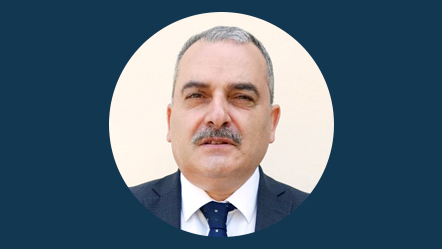
Xəqani Tağıyev
Salyan Rayon Məhkəməsinin sədri
Ədalət mühakiməsinin səmərəliliyini yüksəltmək məqsədilə köklü məhkəmə-hüquq islahatları aparan Azərbaycan Respublikası bu sahədə Avropa dövlətləri və nüfuzlu beynəlxalq qurumlarla əməkdaşlığa mühüm önəm verir.
Avopa Şurası və Avropa İttifaqının Şərq Tərəfdaşlığı çərçivəsində uğurla həyata keçirilmiş “Azərbaycanda məhkəmələrin səmərəliliyinin artırılmasına, hakimlərin təliminin təkmilləşdiriləsinə və məhkəmələrdə özünüidarəetməyə dəstək” layihəsi belə səmərəli əməkdaşlığın yaxşı nümunəsidir.
Layihənin müsbət cəhətlərindən biri onun praktiki əhəmiyyət daşıması olmuşdur. Ötən iki il ərzində 5 pilot məhkəmə ilə tanışlıq səfərləri təşkil olunmuş, Avropa ölkələrində, o cümlədən Strasburqda və Bakıda faydalı tədbirlər keçirilmişdir.
Layihə çərçivəsində pilot məhkəmələrdə məmnuniyyət sorğuları hazırlanaraq keçirilmiş, hakim və məhkəmə aparatı işçiləri üçün məhkəmələrin idarə edilməsi mövzusunda təlimlər təşkil olunmuş, məhkəmə statistikası və məhkəmələrdə vaxtın idarə olunması üzrə CEPEJ təlimatlarının tətbiqi üzrə qabaqcıl xarici təcrübə öyrənilmişdir.
Qeyd olunan tədbirlər zamanı səmərəli qarşılıqlı fəaliyyət, CEPEJ-in məsul əməkdaşlarının, ekspertlərinin dəyərli tövsiyələri və göstərdikləri əməli yardım, eləcə də Azərbaycanın ədliyyə və məhkəmə sistemini təmsil edən yerli tərəfdaşların səyləri bütövlükdə layihənin uğurla həyata keçirilməsini təmin etmişdir.
Inanırıq ki, bu layihənin icrası nəticəsində qazanılmlş təcrübə, bilik və vərdişlər digər məhkəmələrin də fəaliyyətində tətbiq olunacaq və ölkəmizin məhkəmə sisteminin inkişafına xidmət edəcək.
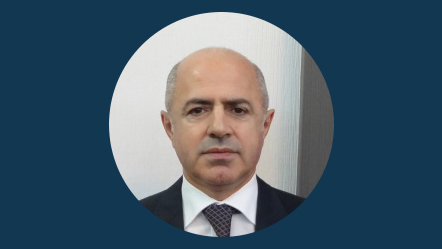
Mübariz Əkbərov
Şəki Apellyasiya Məhkəməsinin sədri
Avropa Şurasının və Avropa Birliyinin 2015-2017-ci illər üzrə Şərq Tərəfdaşlığı Proqram Əməkdaşlığı Çərçivəsinin “Azərbaycanda məhkəmələrin səmərəliliyinin artırılmasına, hakimlərin təliminin təkmilləşdirilməsinə və məhkəmələrdə özünü-idarəetməyə dəstək” adlı layihənin icrasına digər 4 pilot (Sumqayıt Apellyasiya, Bakı Şəhəri Yasamal Rayon, Oğuz Rayon və Sumqayıt İnzibati-İqtisadi) məhkəmələr ilə yanaşı Şəki Apellyasiya Məhkəməsinin də cəlb edilməsini önəmli bir hadisə kimi dəyərləndirirəm. Azərbaycanda həyata keçirilən köklü məhkəmə-hüquq islahatları çərçivəsində müasir məhkəmə infrastrukturunun yaradılması məhkəmə fəaliyyətində də adekvat metodologiyanın tətbiqini günün zərurətinə çevirmişdir. Bu baxımdan CEPEJ-lə iki il ərzində məhsuldar əməkdaşlığımız öz zamanına düşmüş və məhkəmə fəaliyyətinin səmərəliliyinin artırılması istiqamətində CEPEJ alətlərinin və müxtəlif məzmunlu metodologiyaların tətbiqinə dair keçirilən təlimlərin praktiki əhəmiyyəti olmuşdur. Məhz əldə olunan nəzəri və praktiki biliklər nəticəsində CEPEJ alət və təlimatlarına uyğun olaraq layihə çərçivəsində pilot məhkəmələrdə məmnuniyyət sorğuları keçirilmiş, statistik məlumatlar tərtib olunmuş, CEPEJ indikatorlarına uyğun hakimlərin işi qiymətləndirilmiş və məhkəmənin fəaliyyətinin səmərəliliyinin daha da artırılması istiqamətində fəaliyyət planı hazırlanaraq yeni hədəflər müəyyən edilmişdir.
Şəki Apellyasiya Məhkəməsi ictimaiyyətlə etibarlı münasibətlərin qurulmasına və bununla bağlı kommunikasiya imkanlarının artırılmasına səy göstərir. Bu istiqamətdə görülən digər tədbirlərlə yanaşı, CEPEJ-in tövsiyələrinə uyğun keçirilmiş məmnuniyyət sorğularını xüsusilə qeyd etmək istərdim. Həmin sorğular vasitəsi ilə müxtəlif hədəf qruplarının məhkəmə xidmətindən məmnunluq indeksini müəyyən etmək və məhkəmənin fəaliyyətinin korrektəyə ehtiyacı olan sahələrinin dəqiqləşdirilməsi mümkün olmuşdur. Eyni zamanda CEPEJ-in mütərəqqi təcrübəsinə əsaslanaraq hər bir pilot məhkəmə özü üçün məqbul hesab edilən ictimaiyyətlə kommunikasiyanın forma və metodlarını müəyyən etmək imkanını əldə etmişdir.
Şəki Apellyasiya Məhkəməsi öz fəaliyyətinin səmərəliliyinin artırılması və qiymətləndirilməsi üçün CEPEJ alət və təlimatlarının davamlı şəkildə həyata keçirilməsini prioritet məsələlərdən biri kimi qəbul edir və bu təcrübənin bütövlükdə məhkəmə xidmətinə müsbət təsir edəcəyi inamını ifadə edir.
Fürsətdən istifadə edərək mən Avropa İttifaqına, Avropa Şurasına və CEPEJ-in ekspert komandasına bu layihənin reallaşdırılmasına görə dərin minnətdarlığımı bildirmək istəyirəm.
 Improving the efficiency of courts and the quality of judicial services in the Republic of Moldova
Improving the efficiency of courts and the quality of judicial services in the Republic of Moldova
Between June 2015-March 2017 the Council of Europe and authorities of the Republic of Moldova worked together to improve the efficiency of courts and the quality of judicial services, as well as lawyers’ self-governance. This two-year project "Strengthening the efficiency of justice and support to lawyer’s profession in the Republic of Moldova", was organised under the European Union and the Council of Europe Partnership for Good Governance. The participants and beneficiares of the project were interviewed to discover the impact it has had, and will continue to have on their work.
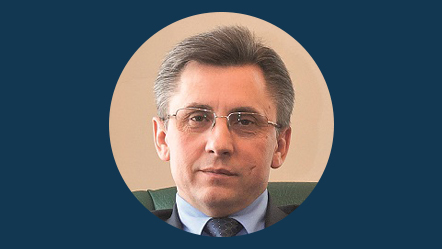
Mihai Poalelungi
President of the Supreme Court of Justice of the Republic of Moldova
President of the Supreme Court of Justice, Mihai Poalelungi appreciated the contribution of the European Union and the Council of Europe project “Strengthening the efficiency of justice and support to lawyer’s profession in the Republic of Moldova”:
“We are firmly convinced that the CEPEJ instruments successfully implemented through the project in six pilot courts, including the Supreme Court of Justice, will improve the efficiency and quality of the judicial process, the services provided to court users. Thanks to the experience and knowledge gained through this project, we acquired practical tools to improve time management in court proceedings, both at court and national levels. Thus, the project responded to a real need of the judiciary at the current stage of optimising the judicial map and the implementation at national level will strengthen the institutional capacities of the courts.”
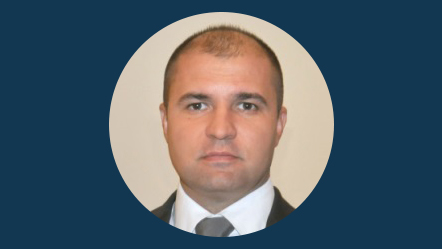
Vladimir Cebotari
Minister of Justice of the Republic of Moldova
Vladimir Cebotari, Minister of Justice of the Republic of Moldova noticed that “I am grateful to the project “Strengthening the efficiency of justice and support to lawyer’s profession in the Republic of Moldova”, funded as part of the European Union and the Council of Europe Partnership for Good Governance in the Eastern Partnership Countries, for its prolific activity in our country.
Over the past two years, representatives from 6 pilot courts of Moldova, as well as my colleagues at the Ministry of Justice, from the Agency for Court Administration, have been trained to organise surveys in view of measuring court users’ satisfaction with services they received after entering in contact with courts. Officials were also trained and enabled to produce annual court activity reports based on the analysis of statistical performance indicators in line with the CEPEJ recommendations.
We have carefully studied the court coaching reports and the Guide addressed to the judiciary of Moldova. They refer to implementation of the priority criteria of the revised edition of the SATURN Guidelines for judicial time management and the Checklist for promoting the quality of justice and the courts, and were developed by the CEPEJ experts on the basis of the evaluation of the pilot courts. I am decided to encourage further implementation of their suggestions.
Developing the mechanism for performance analysis and management in each individual court of justice, as well as at the national level, is indispensable for optimisation of judicial timeframes. The lessons learned and the good practices developed by the pilot courts will help us to improve the quality of the services provided by courts, increase and maintain citizens' confidence in the administration of justice.
Based on some findings and proposals from the CEPEJ experts, we have also developed a list of recommendations for improving the judicial information system, which was included in the ministry's priorities.”

Pirkka Tapiola
EU Ambassador to the Republic of Moldova
EU Ambassador to the Republic of Moldova, Pirkka Tapiola shared hir testimonials: “The European Union and the Council of Europe share common values and standards in democracy, rule of law and protection of fundamental rights. Since many years they have joined forces to support democratic reforms. An example of joint intervention is the EU/ CoE Eastern Partnership Programmatic Cooperation Framework 2015-2017 (PCF), funded by the European Union and co-financed and implemented by the Council of Europe.
The project "Strengthening the efficiency of justice and support to lawyer’s profession in the Republic of Moldova" was implemented between March 2015 and March 2017, as part of the PCF. The project supported the cooperation between the judicial authorities of the Republic of Moldova with the European Commission for the Efficiency of Justice (CEPEJ). This is done in order to improve the efficiency of courts and the quality of judicial services.
Six pilot courts representing all levels of jurisdiction and the National Institute of Justice of the Republic of Moldova were coached and implemented the measures recommended by the CEPEJ in their day-to-day activities. The lessons learned from the pilot courts, will help all Moldovan courts and justice sector stakeholders to increase their efficiency and improve the quality of the judiciary.”
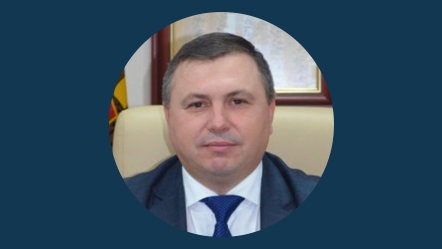
Dorel Musteaţă
Judge, Member of the Superior Council of Magistracy of the Republic of Moldova
Dorel Musteaţă, Judge, Member of the Superior Council of Magistracy of the Republic of Moldova, is certain that “Undoubtedly, the project implemented by CEPEJ had a positive impact on the work of the judiciary of the Republic of Moldova. Judges and representatives of the pilot courts’ secretariats were familiarised with the main CEPEJ instruments for improving time management and the quality of justice, as well as on how to collect and analyse judicial statistics. The activities of the project also focused on the implementation of satisfaction surveys, as measures to assess and improve the quality of judicial services.
I would like to point out that the project was appreciated by the members of the Superior Council of Magistracy, which supported a follow up in the entire judiciary in Moldova.”

Diana Scobioală
Director of the National Institute of Justice of the Republic of Moldova
Diana Scobioală, Director of the National Institute of Justice of the Republic of Moldova, shared her opinion about the project: “Thanks to the support of the project “Strengthening the efficiency of justice and support to lawyer’s profession in the Republic of Moldova”, in the judicial initial and continuous training curriculum of the National Institute of Justice have been included and institutionalised the course on judicial management, including the CEPEJ tools. Within this course the emphasis is put on developing the skills necessary to judges and court staff to adequately manage the time and to ensure an overall efficient management of courts. Involvement of the National Institute of Justice in this project has facilitated the sharing of experiences in the field of court management and the taking over of the best practices in enhancing the efficiency of courts and improving the quality of justice, as well the exchanges on the main challenges of judicial training schools.”

Ion Guzun
CEPEJ national expert, lawyer, member of the NGO „Legal Resources Centre from Moldova (LRCM)”
Ion Guzun, CEPEJ national expert, lawyer, member of the NGO „Legal Resources Centre from Moldova (LRCM)” told: "Implementation of the CEPEJ tools in the Republic of Moldova is a great step forward in court administration, court statistics and evaluation of the court services by different users. These tools can be used for a more professional evaluation of the current court administrators or of judges’ professional achievements. I do believe that the pilot courts, the Superior Council of Magistracy and the Ministry of Justice have understood the importance and convenience of implementing such useful mechanisms, including for the evaluation of the court’s and/or judge’s workload.
For me personally, it was a great opportunity to be part of the project’s expert team. I was honoured to implement activities, while learning both from excellent CEPEJ experts and from dedicated court staff. Having had such a good cooperation with the court staff, I hope the CEPEJ tools will be continuously implemented, especially through periodical reporting of the statistical data and court performance indicators to the public, by all the courts and the central judicial administration."
 Impact on Lawyers’ Association
Impact on Lawyers’ Association
The "Support to the Moldovan Bar Association" component of the Project on strengthening the efficiency of justice and support to lawyers’ profession in the Republic of Moldova worked towards strengthened lawyers’ self-governance.

Vladimir Palamarciuc
Lawyer and the president of the Association of Young Lawyers
Mr Vladimir Palamarciuc, a lawyer and the president of the Association of Young Lawyers, who was also a member of the working group established for the revision of the Code of Ethics, is certain that “the improved document will help to strengthen the trust in the profession and to build a good image of the lawyer in the society. Starting from the lawyer's role in the administration of fair justice, ethics guide the lawyer in pursuing his/her mission”, explains the young lawyer. "The experience of European experts invited by the Council of Europe project to assist the Moldovan Bar Association in aligning the ethical norms of Moldovan lawyers to European standards, has been extremely useful”.

Ion Guzun
Legal Adviser at the Legal Resources Centre from Moldova
Representatives of civil society also welcomed the new Code of Ethics, Mr Ion Guzun, Legal Adviser at the Legal Resources Centre from Moldova, believes “the Code of Ethics brings clarity for both for lawyers and the general public about the actions of a lawyer while carrying out his/her duties, as well as his/her off-duty conduct. The Code of Ethics must also answer the question what is allowed and what actions are not worthy of a lawyer. It is a constitution for lawyers, so to speak”. At the same time, Ion Guzun argues that “as the Republic of Moldova is part of the European and international family, our lawyers participate in activities regarding the protection of rights of individuals and companies abroad and vice versa, it is imminent that ethical standards would be connected to the best European and international practices”. “Moreover, social norms and relationships evolve and we cannot fall behind. This should be done continuously and the legal profession shall be pro-active. Obviously, we do not adjust rules because others have done it. Any amendment or regulation that would protect lawyers and, indirectly, individuals and companies, is to be encouraged,” states the representative of the Legal Resources Centre from Moldova.
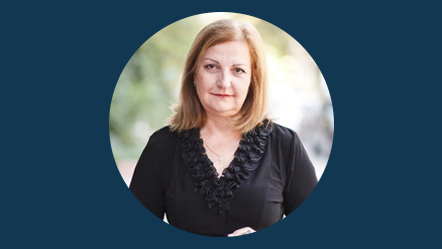
Nina Lozan
President of the Moldovan Bar Association
The President of the Moldovan Bar Association, Mrs Nina Lozan, has appreciated the contribution of the Council of Europe-EU Project “Strengthening the Efficiency of Justice and Support to the Lawyers’ Profession in the Republic of Moldova” and the American Bar Association Rule of Law Initiative ABA ROLI Moldova. In particular, Mrs Lozan has underlined the important contribution of the experts Mr Vahe Grigoryan and Ms Lucy Dupong, President of the CCBE Ethics Commission (2009-2014) who shared best practices on ethical rules for lawyers enabling the later to fulfil their role in defending human rights and fundamental freedoms. She concluded that “in the new version of the Code of Ethics, adopted at the General Assembly of lawyers on 1 July, the rules of professional conduct are fully consistent with the rules of conduct of European lawyers, thus guaranteeing lawyers’ independence and defending our integrity within the administration of justice and for the protection of human rights”.
 Strengthening the Application of the European Convention of Human Rights in Georgia
Strengthening the Application of the European Convention of Human Rights in Georgia
Since 2015, the project focused on harmonising national judicial practices to European standards and strengthening the analytical capacities and application of European Court of Human Rights case law by the courts. To achieve some tangible results, a combination of approaches and methods were used through targeted workshops and training seminars for the legal professionals (judges, prosecutors, lawyers, court clerks), peer to peer trainings, training of trainers and exchanges of experiences, organisation of study visits and provision of Council of Europe expertise. The beneficiaries of the project were interviewed to discover the impact it has had, and will continue to have, on their work.
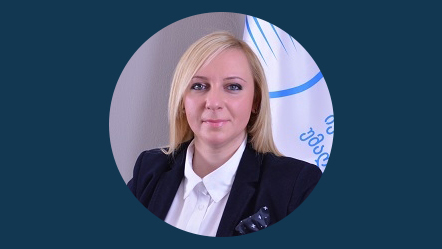
Keti Kvinikadze
Deputy of Director of the High School of Justice, Georgia
Professional trainings covered important topics directly related to the needs of the judiciary, including issues related to the legislative changes.The project strongly contributed to the enhancement of both major fields of High School of Justice’s activities: provision of initial and in-service training programmes

Ana Shalamberidze
Supreme Court of Georgia, Head of Communications and Coordination II Category, Deputy Head of the Primary Structural Unit
The project raised the knowledge of judges and assistants to judges in human rights law, was supporting the Consultative Council of the Supreme Court and strengthened the cooperation of lower court judges to the higher instances to unify the court practice. A survey on Application of the Standards of the European Convention on Human Rights by the Common Courts of Georgia provided a clear picture on usage of the European Court of Human Rights case law in the national judgments.

Salome Shengelia
Head of the Human Rights Unit at the Chief Prosecutor’s Office, Georgia
The project was very effective in helping the prosecutors to understand the key notions of the European human rights standards and in supporting the continuous education of prosecutors. Since 2015, almost 60 learning project activities trained more than 1200 prosecutors and investigators.
